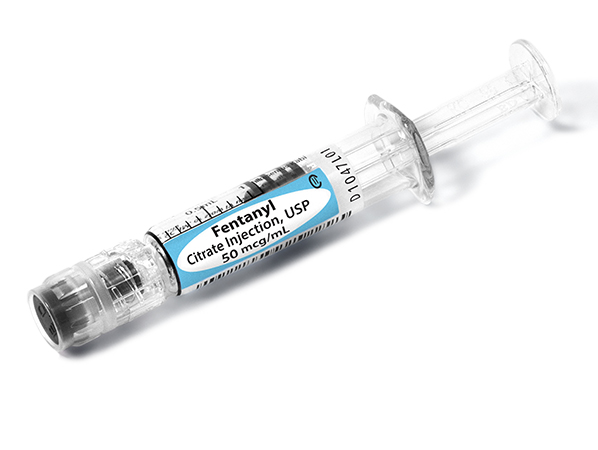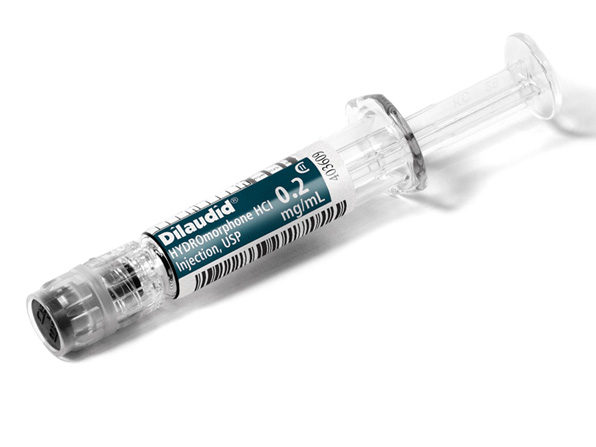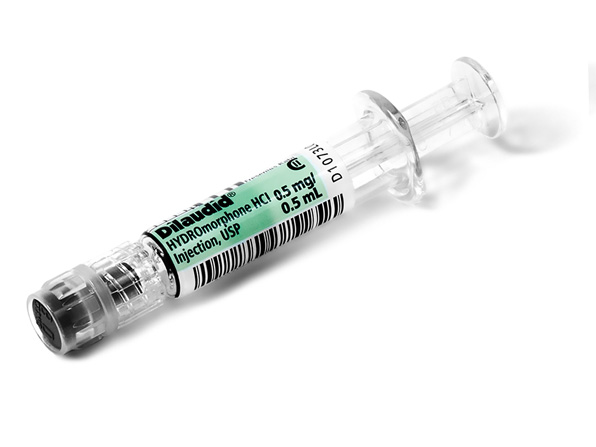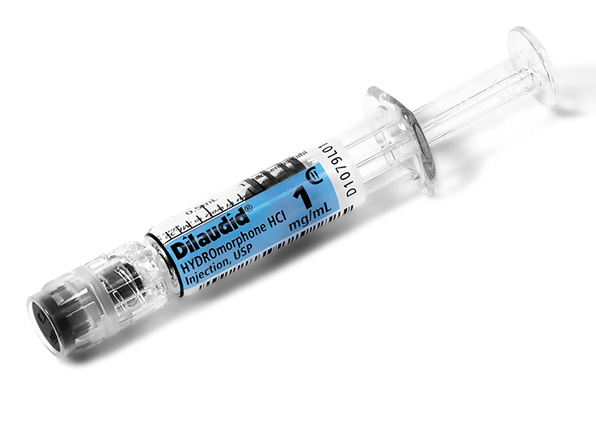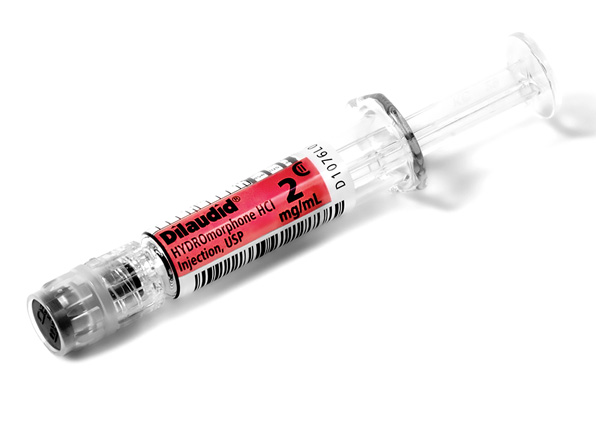IMPORTANT SAFETY INFORMATION
DILAUDID® INJECTION (hydromorphone hydrochloride), for intravenous, intramuscular, or subcutaneous use, is an opioid agonist indicated for the management of pain severe enough to require an opioid analgesic and for which alternate treatments are inadequate.
Limitations of Use: Because of the risks of addiction, abuse, and misuse with opioids, even at recommended doses, reserve DILAUDID INJECTION for use in patients for whom alternative treatment options [e.g., non-opioid analgesics or opioid combination products]:
- Have not been tolerated, are not expected to be tolerated
- Have not provided adequate analgesia, or are not expected to provide adequate analgesia
DILAUDID INJECTION is contraindicated in patients with:
- Significant respiratory depression.
- Acute or severe bronchial asthma in an unmonitored setting or in absence of resuscitative equipment.
- Known or suspected gastrointestinal obstruction, including paralytic ileus.
- Known hypersensitivity to hydromorphone, hydromorphone salts, sulfite-containing medications, or any other components of the product.
Use the lowest effective dosage for the shortest duration consistent with individual patient treatment goals. Individualize dosing based on the severity of pain, patient response, prior analgesic experience, and risk factors for addiction, abuse, and misuse.
Warnings and Precautions:
Life-Threatening Respiratory Depression in Patients with Chronic Pulmonary Disease or in Elderly, Cachectic, or Debilitated Patients: Monitor closely, particularly during initiation and titration.
Adrenal Insufficiency: If diagnosed, treat with physiologic replacement of corticosteroids, and wean patient off of the opioid.
Severe Hypotension: Monitor during dosage initiation and titration. Avoid use of DILAUDID INJECTION in patients with circulatory shock.
Risks of Use in Patients with Increased Intracranial Pressure, Brain Tumors, Head Injury, or Impaired Consciousness: Monitor for sedation and respiratory depression. Avoid use of DILAUDID INJECTION in patients with impaired consciousness or coma.
DILAUDID INJECTION contains sodium metabisulfite. There is a risk of anaphylactic symptoms and life-threatening asthmatic episodes in susceptible people.
Adverse Reactions: Most common adverse reactions are lightheadedness, dizziness, sedation, nausea, vomiting, sweating, flushing, dysphoria, euphoria, dry mouth, and pruritus.
To report SUSPECTED ADVERSE REACTIONS, contact Fresenius Kabi USA, LLC at 1-800-551-7176 or FDA at 1-800-FDA-1088 or http://www.fda.gov/medwatch.
Serotonergic Drugs: Concomitant use may result in serotonin syndrome. Discontinue DILAUDID INJECTION if serotonin syndrome is suspected.
Monoamine Oxidase Inhibitors (MAOIs): Can potentiate the effects of hydromorphone. Avoid concomitant use in patients receiving MAOIs or within 14 days of stopping treatment with an MAOI.
Mixed Agonist/Antagonist and Partial Agonist Opioid Analgesics: Avoid use with DILAUDID INJECTION because they may reduce analgesic effect of DILAUDID INJECTION or precipitate withdrawal symptoms.
Pregnancy: May cause fetal harm.
Overdosage: Acute overdose with DILAUDID INJECTION can be manifested by respiratory depression, somnolence progressing to stupor or coma, skeletal muscle flaccidity, cold and clammy skin, constricted pupils, and, in some cases, pulmonary edema, bradycardia, hypotension, partial or complete airway obstruction, atypical snoring, and death. Marked mydriasis, rather than miosis, may be seen with hypoxia in overdose situations.
This Important Safety Information does not include all the information needed to use DILAUDID INJECTION safely and effectively. Please see full prescribing information, including BOXED WARNING, for Dilaudid Injection.
